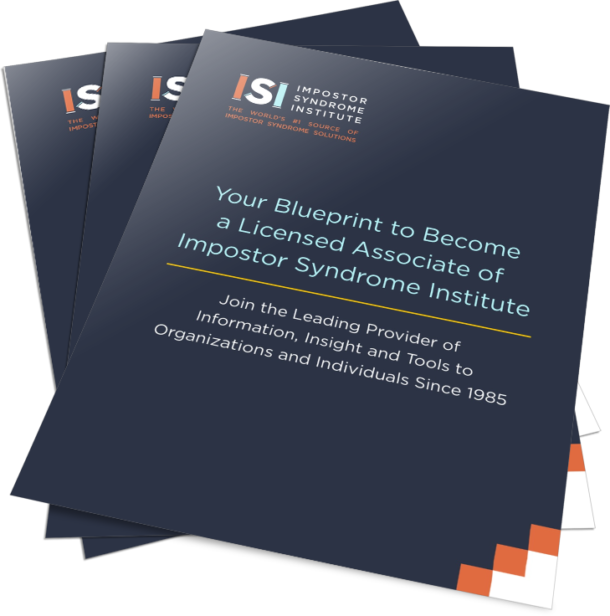There are many potential sources of impostor syndrome.
Family messages and expectations, situational factors like being a student, being in a group for whom there are societal stereotypes regarding competence and intelligence, and aspects of organizational culture both related and unrelated to bias.
However, there is one thing everyone with impostor syndrome shares one thing in common.
Given this article’s title, you might expect that one thing to be perfectionism.
You’d be close.
More broadly, though, the one thing everyone who experiences impostor syndrome shares is an unrealistic, unsustainable internal rulebook about what it means to be competent.
Not surprisingly, studies have shown a strong connection between the impostor phenomenon and perfectionism.
Before looking at this link, it’s important to note that not everyone who experiences impostor syndrome identifies as a perfectionist.
In 2001, I discovered what became known as the five types of impostor syndrome.
These types represent five potential ways people with impostor feelings measure their competence.
In addition to the Perfectionist, there is the Expert, the Natural Genius, the Soloist, and the Superhuman.

Meet the Perfectionist
For the perfectionist, the entire focus is on how something is done.
To be truly competent, you believe you should deliver an unblemished performance 100 percent of the time.
Because you believe every aspect of your work must be exemplary, an insignificant typo in an email or forgetting to make some minor point in a presentation feels like failure.
Not being able to measure up to these unrealistically high standards consistently only confirms your feelings of impostorism.
Some Perfectionists hold only themselves to these exacting standards, while others impose them on others.
At home, the latter might sound like this: No, honey, that’s not how you fold a towel — this is how you fold a towel. There is a right and wrong way to do everything, from packing the car for vacation to preparing a project plan.
Even if you are extremely motivated, success is rarely satisfying because you always believe you could have done even better.
Perfectionism is a hard habit to break because it’s self-reinforcing.
Because you tend to overprepare, you often turn out a stellar performance, reinforcing your drive to maintain that perfect record.
But it’s a huge setup.
When you expect yourself and your work to always be perfect, it’s not a matter of whether you will be disappointed but when.
What you consider merely “satisfactory” work probably far exceeds what’s required. That’s why it is so important to reframe your current thinking about things like “quality” and “standards.”
For 25 years I advised people who aspired to take the leap from having a boss to being their own boss.
As a rule, the women were far more likely to wait for everything to be perfect before launching.
They’d endlessly tinker and tweak and adjust, ensuring everything was just so, but they never began.
Ultimately, these high-minded notions of “quality standards” and “getting it right” equal paralysis.
Unlearning Perfectionism
To be clear, there are many male perfectionists… you may even live with one.
However, the multi-millionaire male entrepreneurs I knew were more apt to operate from a different definition of quality.
Their mantra was, “You don’t have to get it right; you just have to get it going.”
Some business gurus went even further, telling procrastinating perfectionists that “Half-ass is better than no ass.”
A less crass motto in the software world is known as GEQ: Good enough quality.
Regardless of what you call it, the fundamental truth remains: If you wait for everything to be perfect, you’ll never act.
Whether it’s a product, a thesis, or simply an idea, you must put version one out there, get feedback, and improve on it from there.
You can always “course correct” as you go.
But at some point, you must decide that whatever you’re working on really is good enough.
To be clear, perfectionism is different from a healthy drive to excel.
You can seek excellence without demanding perfection.
More importantly, non-perfectionists will attempt difficult challenges and feel okay about themselves afterward—whether they succeed or not.
And they’re flexible enough to redefine success as the situation warrants. That’s not to say they aren’t disappointed if they fail.
But there is no shame if they give it their best shot.
None of this means you must relinquish your quest for excellence or do things willy-nilly.
It means that with some obvious exceptions like performing surgery or flying an airplane, not everything you do deserves 100 percent.
It’s a matter of being selective about where you put your efforts and not wasting time fussing over routine tasks when an adequate effort is all that’s required.
If you get a chance to go back and make improvements later, great. If not, move on.
There’s a reason why scientist and science fiction writer Isaac Asimov is proud to describe himself as a “non-perfectionist,” telling fans, “Don’t agonize. It slows you down.”




